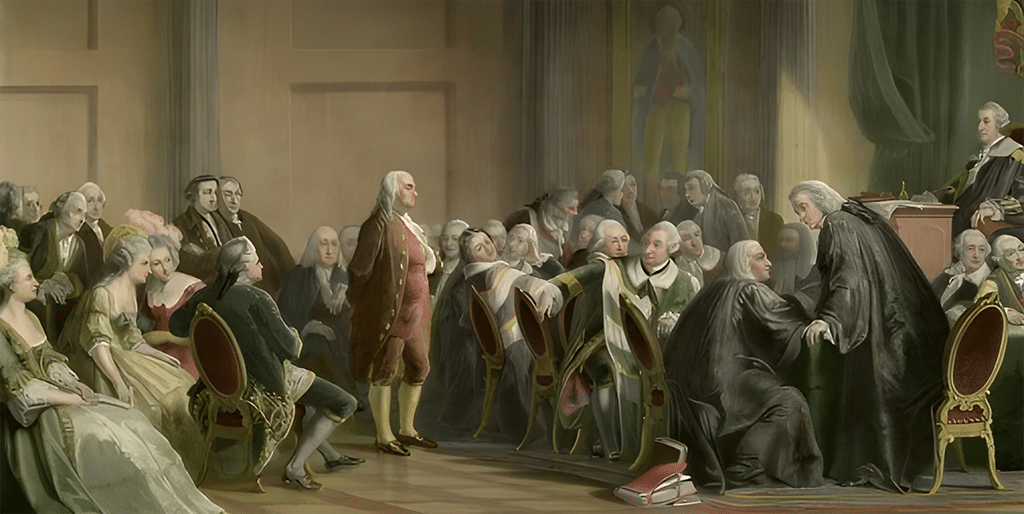Excerpts from: Americanism Redux: April 25, on the journey to the American Founding, 250 years ago today, in 1774
Every day you hear sounds that you know define your life. They show you where you are. The sounds heard in the last full week of April 1774 did much the same thing for people then. There were sounds of a husband and wife bickering in Urbanna, colony of Virginia; sounds of the wind driving the windmill on a granary in Annapolis, Maryland that the owners were hoping to lease or sell; sounds of a colonial governor in Pennsylvania who placed great faith in his agents to negotiate peace on the Appalachian Mountain frontier; sounds of another “tea party”, this time at Sandy Hook on Long Island; sounds of people talking in loud tones in Boston, Massachusetts and Charleson, South Carolina after learning that England’s Solicitor General Alexander Wedderburn had humiliated famous colonist Benjamin Franklin for his role in leaking private imperial documents.
And in England, sounds of intense political debate in Parliament’s House of Commons over a proposed “administration of justice” act that would punish Boston and Massachusetts for its tea dumping. These were the sounds of a world coming closer to a life-changing crisis.
Americanism Redux, a series by historian author, Dr. Dan Miller, explores what Americanism meant 250 years ago and its significance for America today. Visit Dr Dan Miller’s website>

Reference: The Remnant Trust Collection
A newspaper in Charleston, colony of South Carolina inserted an intriguing reference in the description of Parliament’s ongoing reaction to the colonial tea protests in Boston, New York City, Philadelphia, and Charleston itself. The writer remarked that “Liberty travels Westward,” meaning that individual liberty and freedom seemed under attack in England and the rest of Europe. The American colonists, the quote suggests, are the last place where liberty can find a home. The Remnant Trust’s Item (#1338), “English Liberties, or the Free-Born Subject’s Inheritance”, written by Henry Care, first published in America in 1721, hinted at the precarious state of liberty in any governmental system.
View The Remnant Trust “Wisdom of the Ages Athenaeum PDF for reference>

